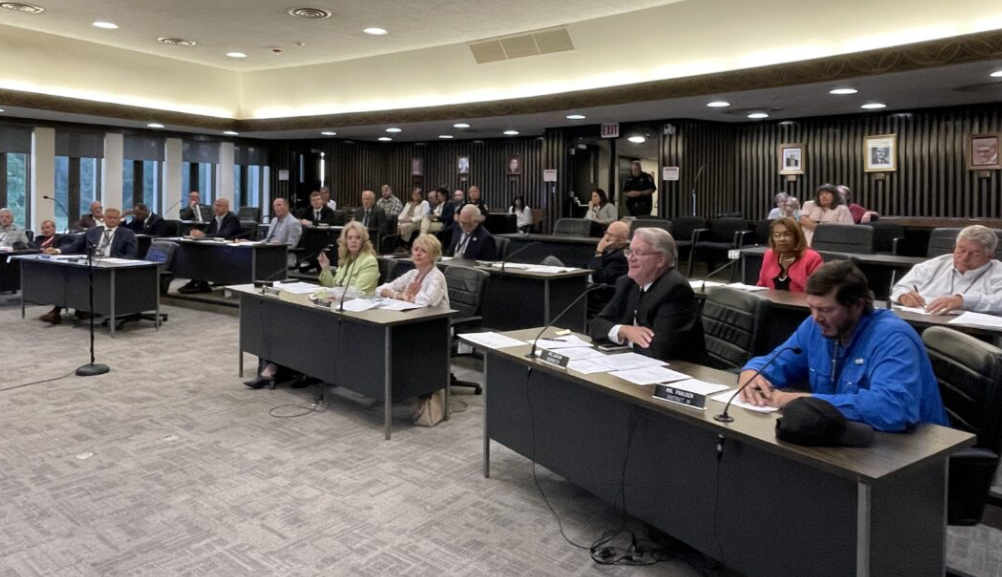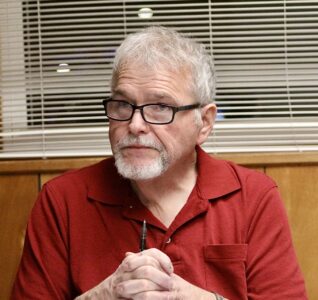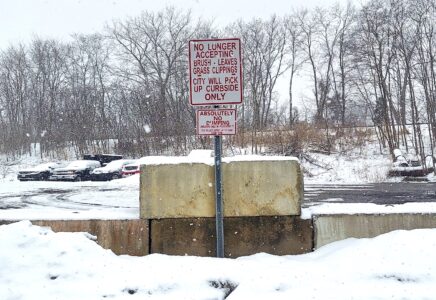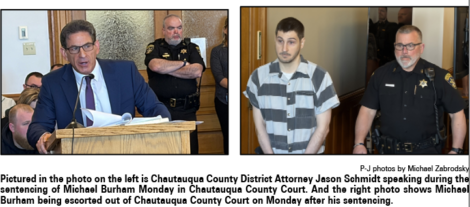Area spending compulsion is frightful

OBSERVER file photo Chautauqua County legislators raised taxes in 2025 despite having a $38 million surplus.
Six years of ineptitude when serving as an elected council member can lead to moments of illusion. The most recent occurred at an August Finance Committee meeting.
That was when Nancy Nichols of the Fourth Ward remarked the OBSERVER was trying to frighten residents when it comes to the city and its fiscal affairs. Frankly speaking, it is too bad Nichols never took to heart the numerous alarms the newspaper sounded since 2016 once the former power plant — that contributed $4 million annually in revenue to city coffers — closed.
If she — and other fellow council members — had known the basics of simple arithmetic, they would have been able to equate the fiscal cliff coming in the city’s budget. Without that boatload of revenues that dried up in the facility’s shuttering, spending never slowed down.
When NRG closed, the plan was about $22 million in 2017. Today — with a shrinking tax base — the total cost to manage the city has expenses of more than $28 million — a 27% increase.
That mismanagement — by city elected leaders, not the newspaper — led to the fiscal Armageddon that surfaced in March 2024 showing the entity running a $13 million deficit.
Around this time last year, council members practically froze when handed the notorious budget proposal by Mayor Kate Wdowiasz that increased the tax rate 108%. After reducing that amount to 84%, they were hoping to be viewed as heroes by those constituents who voted them into office.
Far from it.
Realistically — aside from Gov. Kathy Hochul bailing out the city in June over a $13.7 million loan payment owed to New York state in July that comes with a 7% interest rate for years to come — Dunkirk leadership has done not even the bare minimum to repair its financial fortunes.
Even highly respected state Sen. George Borrello cannot get the city’s Republican leaders to understand the continuing crisis. Despite his push for a control board in the spring to right the capsizing canoe, Nichols and fellow council members Abigail Yerico and James Stoyle never publicly advocated going that direction.
All three are closely tied to unions. They would never want to harm the largest piece of the expense line.
Hopes for financial restraint in the future do not appear to be in the cards when it comes to the November election. Council candidates Frank Torain and Colby Garza are running in the Second Ward; Gary Frederickson is unopposed for Third Ward; and Michael Civiletto faces Nichols for Fourth Ward. Incumbents Nick Weiser and Natalie Luczkowiak are unopposed and Yerico and Stoyle are not seeking re-election.
WIth less than two months till the election, none of these individuals have taken a specific position on how they will fix the ailing government. Probably because they have no solutions.
Autumn brings a season of reckoning — not just for the major municipalities but also for Chautauqua County. All three are in the midst of putting together spending plans for 2026.
Both Dunkirk and Jamestown consistently face troubles. Cities across upstate that continue to shrink have seen double-digit tax increases. It is due mostly to costs associated with staffing and maintenance tied to police and fire protection.
Chautauqua County is sitting in a much prettier position, but its elected leaders are not worthy of praise. Flush with reserves of $38 million, this body likes to play the game of deception and brag about how they continue to lower the tax rate.
There is no savings if the overall tax levy continues to climb.
Yes, the rate was lower. But property owners still saw a rise in their tax bills.
Facing that truth, legislators need to quit the propaganda. Be honest about the increase — and the fact the dominant county Republicans with a $300 million budget are addicted to spending while building a surplus that should be going back to the overburdened residents they serve.
Government has historically blamed the messenger in the media when there is a crisis. We understand.
That reaction, for those elected, is less frightening than having to face the mirror.
John D’Agostino is editor of The Post-Journal and OBSERVER. Send comments to jdagostino@observertoday.com or call 716-487-1111, ext. 253.






